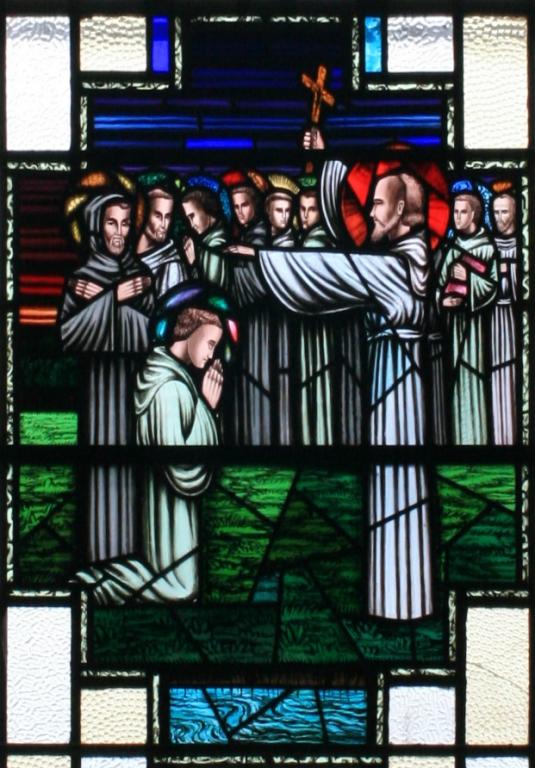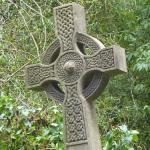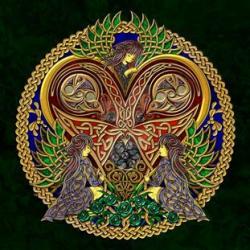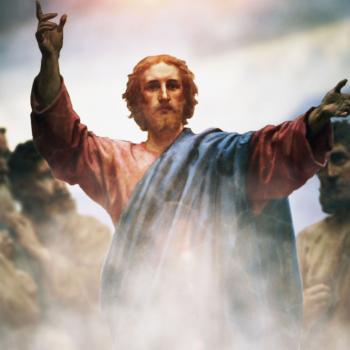 The Journey Continues
The Journey Continues
As we continue to discuss the modern applications of Irelands ancient Christian founders, it is important to point out some simple observations about these persons. First, these 12, similar to the Apostles of Jesus came from all walks of life. This was a diverse group from different regions of Ireland and different socio-economic backgrounds. This is something dearly needed in the modern church. We need voices from all walks, experiences and cultures. As God made all of us in Gods image, the picture of God in us gets clearer the more diverse the Christian voice is.
Secondly, they were deeply committed to the people of God, not just the building of God. None of these apostles ever really rose to prominence the way Bishops in Rome did. Like Bishops in the Latin Rite, they did not seek territorial diocese by which they could rule. They simply sought to be present for the people that were around them. Celtic Bishops never really had territorial claims. Bishops in Ireland were true servant leaders.
Today, I want to introduce you to three more Apostles of Ireland and hopefully give insight from their experience that translates into the modern world of today.
St. Ciaran of Clonmacnois
Saint Ciarán of Clonmacnoise (c. 516 – c. 549), born Ciarán mac an tSaeir (“son of the carpenter”), the first abbot of Clonmacnoise. His father was a carpenter and chariot maker. As a boy, Ciarán worked as a cattle herder. He was a student of Finian’s at Clonard and in time became a teacher, himself. Columba of Iona said of Ciarán, “He was a lamp, blazing with the light of wisdom.” In about 534, he left Clonard for Inishmore where he studied under Enda of Aran, who ordained him a priest and advised him to build a church and monastery in the middle of Ireland. Later, he travelled to Senan on Scattery Island (in about 541).
In 544, he finally settled in Clonmacnoise, where he founded the Monastery of Clonmacnoise with ten fellow companions. As abbot, he worked on the first buildings of the monastery; however, he died about seven months later of a plague, in his early thirties. His feast day is 9 September.
One story tells that he lent his copy of the Gospel of St Matthew to fellow-student St Ninnidh. When Finnian tested the class, Ciarán knew only the first half of the Gospel. The other students laughed and called him “Ciarán half-Matthew.” St Finnian silenced them and said, “Not Ciarán half-Matthew, but Ciarán half-Ireland, for he will have half the country and the rest of us will have the other half.”
The monastery at Clonmacnoise became one of the most important centers of learning and religious life in Ireland. Unusually, the title of abbot – which included the title “Comarba of Saint Ciarán” – at the community was not hereditary, which reflected the humble origins of its founder. It managed to survive the plundering’s of the Viking raids and the Anglo-Norman wars, and was only destroyed during the Dissolution of the Monasteries, in 1552. The ruins still exist, and remain a center of civic and religious activity to this day.
Ciaran’s Lesson
Ciaran reaches out to us from the history of Ireland with an important lesson, the importance of educating. In our day and age, we have a generation of Pastors and Priests who hardly understand their own faith. A pew study in the 2000’s stated that almost 60% of Pastors could not explain their own faith or salvation account. It is clear that the Western Church is grossly undereducated in the ways of our faith. Ciaran dedicated his short life to the education of those that would bring the gospel to the rest of Ireland. He understood what we know in our modern churches today. An uneducated minister is a dangerous minister. Many cults have been started, and lives lost because of twisted scriptures used by leaders who never received in basic education in the scriptures. We owe it to our congregations to be educated and fit to lead them
St. Brendan of Bir
Saint Brendan of Bir (died c. 572) was one of the early Irish monastic saints. He was a monk and later an abbot, of the 6th century. He is known as “St Brendan the Elder” to distinguish him from his contemporary and friend St Brendan the Navigator of Clonfert. Brendan of Birr is said to have been of a noble Munster family. It was at Clonard that Brendan became a friend and companion of Ciarán of Saigir and Brendan of Clonfert.
He founded the monastery at Birr in central Ireland in about 540, serving as its abbot. Brendan emerges from early Irish writings as a man of generous hospitality with a reputation for sanctity and spirituality who was an intuitive judge of character. This Saint was considered one of the chief prophets of Ireland. This is evidenced both in his title (‘Prophet of Ireland’), and by his attendance at the synod of Meltown, in which Saint Columba was brought to trial over his role in the Battle of Cúl Dreimhne in 561.
Merciful Brendan
Brendan spoke on Columba’s behalf, prompting the assembled clerics to sentence Columba with exile rather than excommunication. His friendship and support for Columba resulted in important connections between Birr and the Columban foundations. An adviser of Columba said that the saint saw a vision of Brendan’s soul being carried away by angels after his death. He thereupon ordered for a mass to be said in his honor.
Brendan’s Lesson
Brendan of Bir teaches us the importance of reputation and mercy. Brendan, although of noble birth, set about ensuring he had the reputation so that he could speak into the lives of others. This is an art we have lost in the Western Church. We have it in our collective pastoral heads that we can shove the gospel down unsuspecting throats. But this was not the way of Brendan. He was known as a man of hospitality and generosity first, then a prophet. When we as pastors, care for the person and their needs first, over time we earn the right to speak of the gospel to people. We must recapture what it truly means to be hospitable to our neighbor first, instead of threatening them with hellfire. Pastors, be like Brendan.
Brendan then is known as merciful. Man, could we use a page from this playbook now. I am sad to say, Christians are some of the most unmerciful people I know. We call out for the mercy of God in our own lives, but refuse to see it through in the lives of others. This is a major reason Christianity has lost its platform, because we lack mercy but expect it from others. Again, be like Brendan.
St. Columba of Tir-da-glasí (Terryglass)
Columba of Terryglass (Colum) (died 13 December 552) was the son of Ninnidh, a descendant of Crinthainn, King of Leinster. In his youth he learned his psalms and hymns from an old holy man named Colman Cule, who lived near Clonenagh, and founded the church of Cluain Cain. Afterwards he studied with Finnian of Clonard. Columba resolved to go to Rome and bring back some relics of Saints Peter and Paul. On his return he visited Tours and brought from there the staff of St. Martin of Tours. He also visited England and preached with some success to the Anglo-Saxons. Returning home, he remained a year at Clonenagh before crossing Slieve Bloom and founding a church near Lough Derg.
Around 520 Columba was prompted by an angel to relocate to Inis Cealtra, where he remained a long time. According to one story, when one of his monks died suddenly on the shore opposite the northern part of the island, Columba ordered the monks to go and say to the dead man, “Columba bids thee arise.” The man then arose and returned with them to the island. Columba founded the celebrated monastery of Tirdaglas (Tir-da-glasí), or Terryglass in 548.
Columba’s Lesson
This Columba (There are many) teaches us the importance of listening for the heartbeat of God. He teaches us that sometimes, God will call us into areas of un comfort. As Pastors, we must learn to embrace being uncomfortable. Columba shows us that sometimes we must bid things to arise that the world has tried to destroy. In this time and moment, we need to bid Western Christianity to arise from its grave of complicity and apathy. The church needs to arise into a time of repentance for past wrongs and acceptance of a place in a world that has had no reason to trust the church in many years. Pastors and church leaders, I bid you to arise and meet the challenge of your mantle, going into whatever situation the Lord has called you into.
To learn more about Celtic Christianity click here











